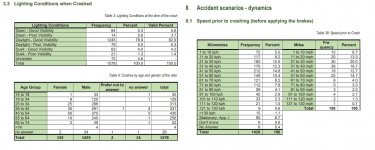Chris-CJ
Well-known member
This 2021 riding season has seen an almost per week mention of "RIP" and/or "GWS" and it is disconcerting. A 2020 study surprisingly showed that it was the post crash trajectory that was a major cause that determined the severity of injury.
Read about it here ...

 investigativeresearch.org
investigativeresearch.org
Read about it here ...











 good catch and a very valid observation but it does reinforce the "ride safe, ride aware" mantra.
good catch and a very valid observation but it does reinforce the "ride safe, ride aware" mantra.






